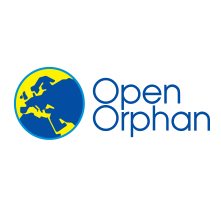Healthy, young people who were intentionally exposed to the coronavirus SARS-CoV-2 developed mild symptoms — if any — in a first-of-its-kind COVID-19 human-challenge study. Such trials present a unique opportunity to study viral infections in detail from start to finish, but are controversial because of the risks they pose to participants.
The UK study of 34 individuals, aged 18–30 years, shows that such trials can be done safely, say scientists, and lays the groundwork for more in-depth studies of vaccines, antivirals and immune responses to SARS-CoV-2 infection. The results were posted on 1 February on the preprint server Research Square and have not been peer reviewed.
The trial, led by researchers at Imperial College London and a Dublin-based commercial clinical-research organization called Open Orphan and its London-based subsidiary hVIVO, was announced in October 2020, and the first participants were exposed to the virus in early 2021.
Open Orphan (LON:ORPH) was founded in 2017, with the goal of rapidly building Europe’s leading pharma services company by a management team with extensive industry and financial expertise. The company comprises of two commercial specialist CRO services businesses (Venn Life Sciences and hVIVO) and is also developing a genomics data platform business (Genomic Health Data).

